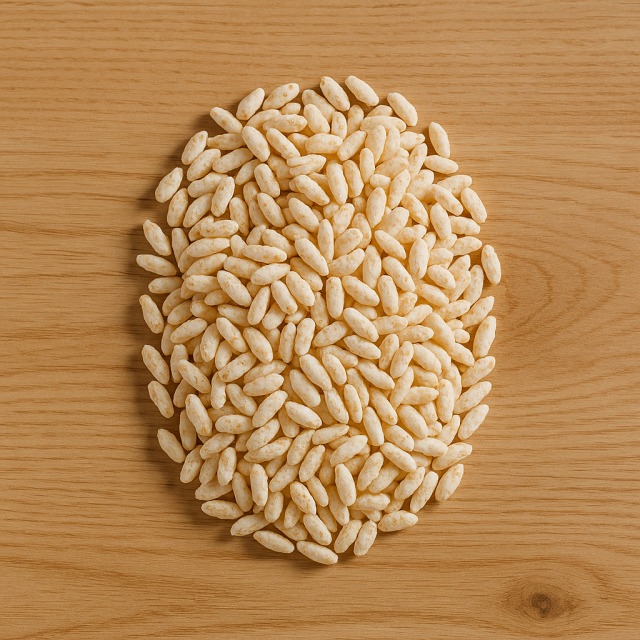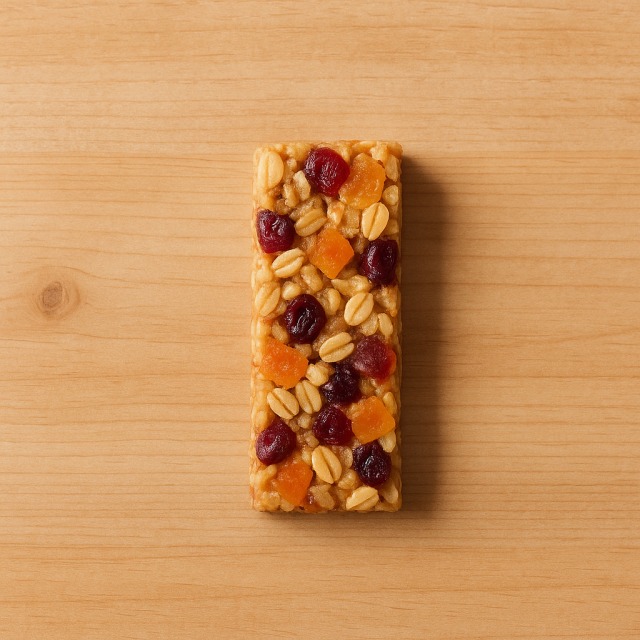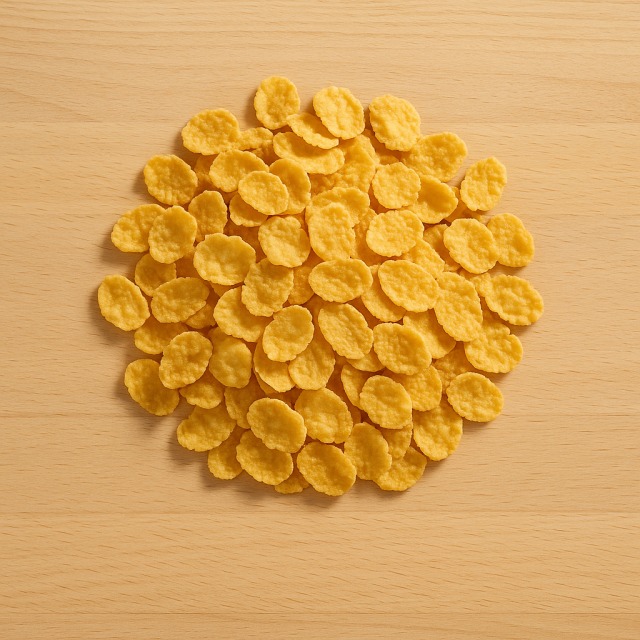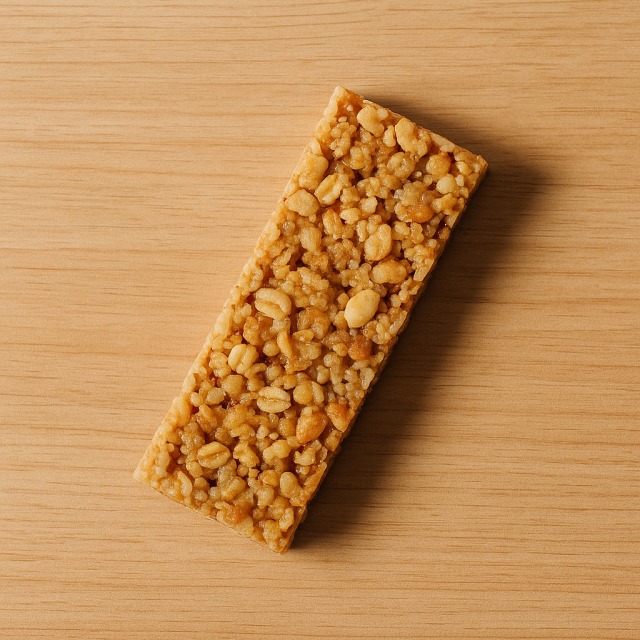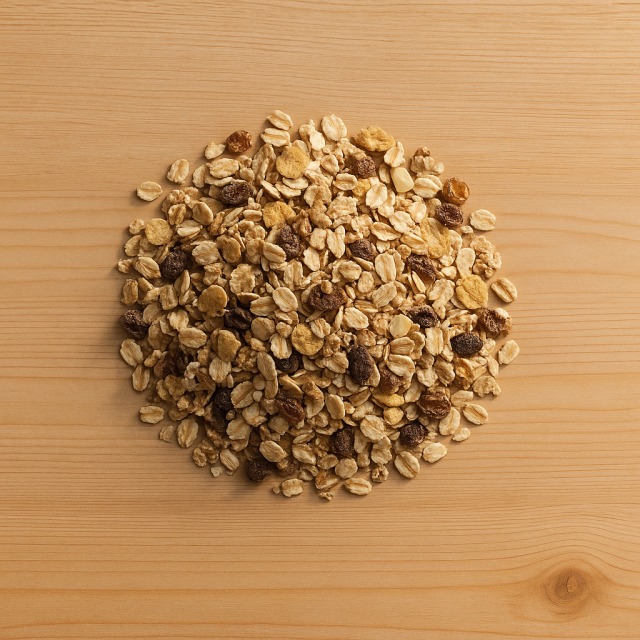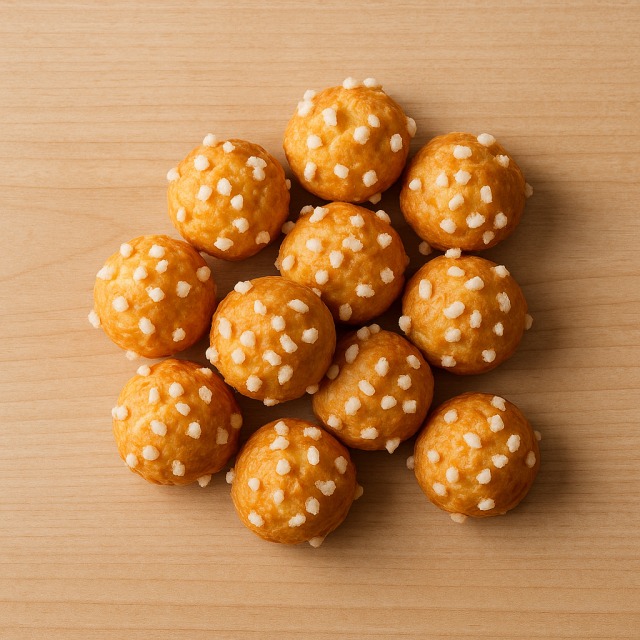Calorie Chart / Breakfast, Snacks / Cereal - Oat flakes
How Many Calories Are in Oat flakes?
Calculation of the nutritional value & Recommended Dietary Intake of oat flakes
For g and a calorie requirement of kcal
| Calories 150 kcal | Proteins 6 g | Lipids 2.6 g | Carbohydrates 26 g |
| 8% | 8% | 4% | 9% |
Health benefits of oat flakes
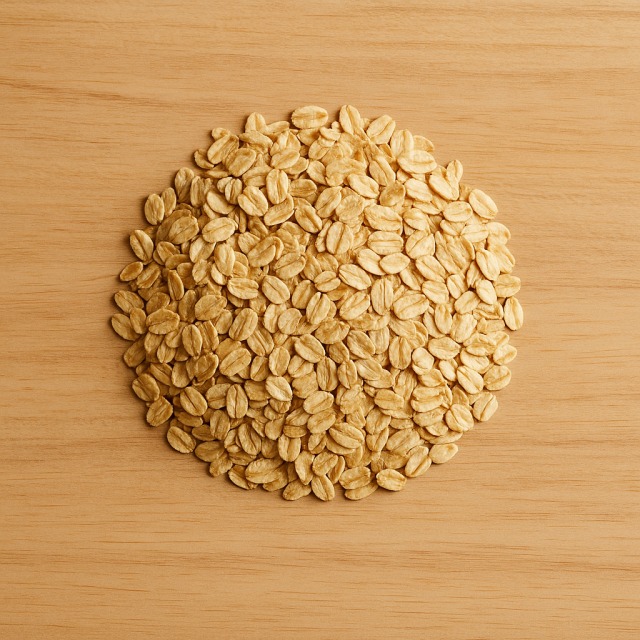
Oat flakes - 100g
Calories 375 kcal
Proteins 15 g
Lipids 6.5 g
Carbohydrates 64 g
With around 375 calories per 100 g, oat flakes are a high-calorie cereal, yet those calories are mostly delivered as slow-release complex carbohydrates that help maintain steady energy. Because their calories are coupled with a high fiber content, they provide remarkable satiety compared with other breakfast cereals.
Oat flakes supply valuable micronutrients: vitamin B1, vitamin B5, folate, magnesium, manganese, iron and zinc. They also contain antioxidants called avenanthramides, and their soluble fiber (β-glucan) contributes to normal blood-cholesterol levels. Thanks to these assets, the calories you ingest come with added nutritional benefits rather than empty calories.
The β-glucan in oats forms a viscous gel in the digestive tract, slowing down carbohydrate absorption, which can help keep blood sugar—and by extension calorie utilization—more stable during the day. This is particularly appreciated by endurance athletes who need dependable calories over long efforts.
Cultivated for more than 4,000 years, oats were first used as animal feed before becoming a staple human food in Scotland and Northern Europe. Today, their hearty taste and nutrient-dense calories make them a favorite ingredient in muesli mixes, rivaling products such as corn flakes for breakfast popularity.
Tips for incorporating oat flakes into a balanced diet
Because oat flakes are dense in calories, portion size matters: 40–50 g (about half a cup) is enough for most breakfasts. Turn them into a classic porridge by simmering them in water or semi-skimmed milk; top with diced apple or sliced banana to add sweetness without too many extra calories.
For a no-cook option, prepare overnight oats: soak the flakes in plain yogurt with a spoon of honey. The result is creamy, refreshing, and packs well-balanced calories, proteins, and healthy fats. A sprinkle of toasted almond shards adds crunch and further stretches the calories across all three macronutrients.
Need a savory twist? Use oat flakes as a risotto base: toast them lightly, deglaze with vegetable stock, and finish with a spoonful of mushroom cream. You obtain comfort food that delivers sustained calories while being richer in fiber than white rice.
Finally, athletes looking for compact training fuel can mix oat flakes with mashed dried apricot and nut butter, press the dough into bars, and bake briefly. Each bar concentrates calories, minerals, and slow carbs—far healthier than many commercial snacks.
Frequently Asked Questions
- How many calories are in oat flakes?
- Oat flakes contain about 375 kcal per 100 g.
- Are oat flakes good for weight loss even though they are high in calories?
- Yes. Their β-glucan fiber increases fullness, so you often end up eating fewer calories at subsequent meals. Control portion size to keep overall calories in check.
- How can I reduce the calories of my morning porridge?
- Use water or skimmed milk instead of whole milk, sweeten with fruit like raspberry rather than sugar, and keep toppings such as peanut butter moderate to shave off significant calories.
- Are oat flakes gluten-free?
- Oats are naturally gluten-free; however, cross-contamination is common. If you are sensitive, choose certified gluten-free oats; the calories remain identical.
- Which is lower in calories: oat flakes or muesli?
- Plain oat flakes have slightly fewer calories than most muesli mixes because muesli often includes added nuts and dried fruit. Always check labels, as calories vary widely.
- Is it better to eat oat flakes before or after a workout?
- Eaten 1–2 h beforehand, their slow-release calories fuel endurance sessions; post-exercise, pairing them with a protein source like egg helps recovery while restoring calories burned.
Similar foods
Information provided by Calorie Menu may contain inaccuracies or errors. It cannot, under any circumstances, substitute medical advice or medication.
